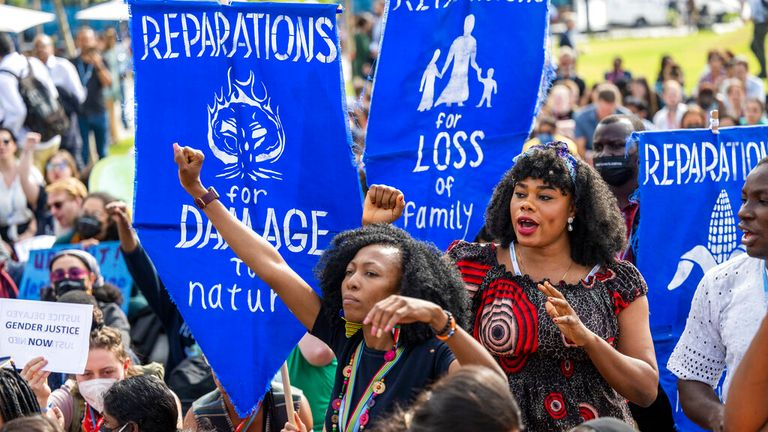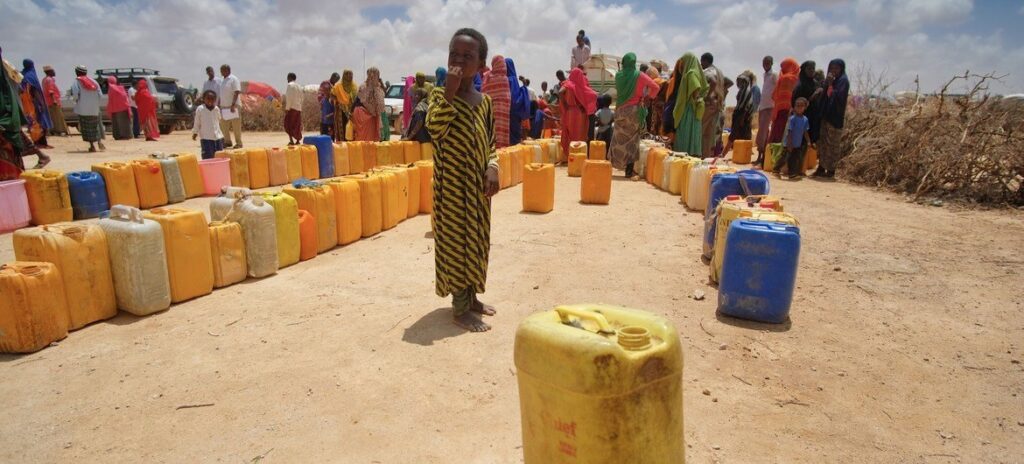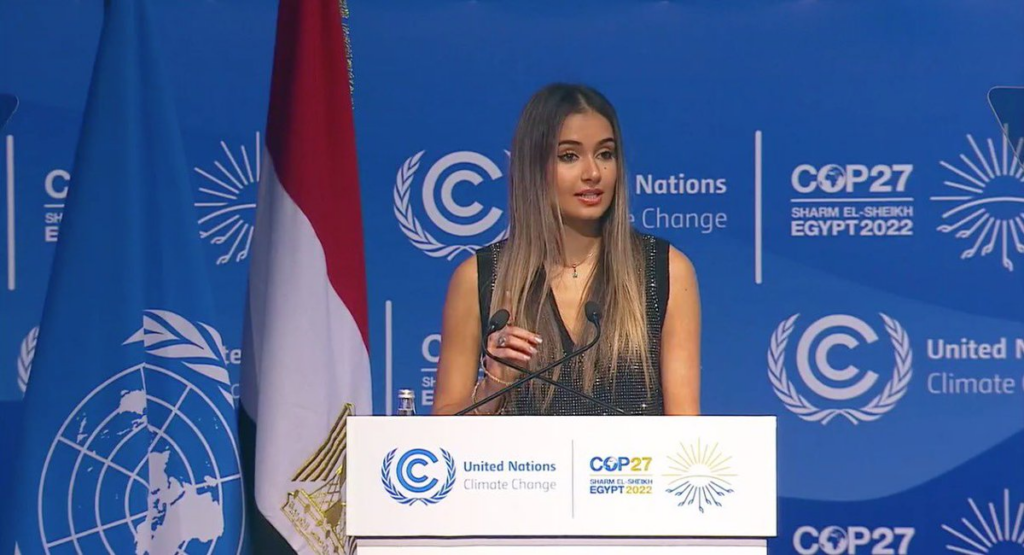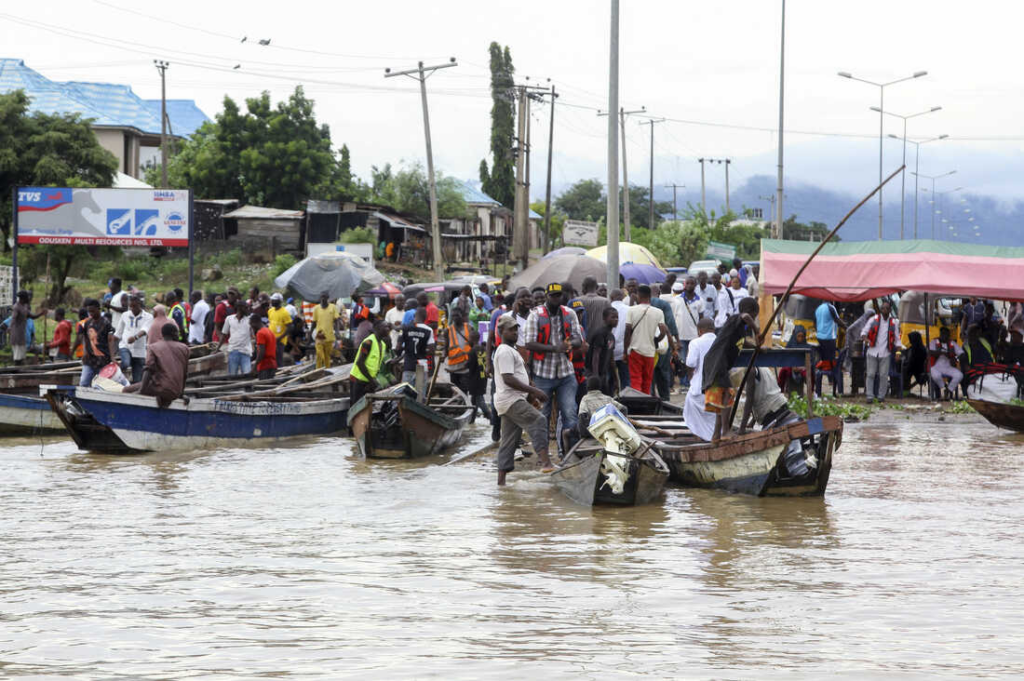Listen to the audio version here.
In 1963, Rachel Carson said:
“I think we’re as challenged as mankind has ever been challenged before, to prove our maturity and mastery— not of nature, but of ourselves.”
That was nearly 60 years ago, and her words still ring eerily true to this day. The more that humans take over planet Earth, and over-consume its natural resources, the more it becomes painfully clear that this shortsightedness may spell our young species’ downfall. There is hope: as a species, humans are hard-wired for creativity and collaboration. If we use those innate gifts to restore our relationship with nature, and each other, we can ascend into a new age of shared prosperity for all.
One of our biggest obstacles, built by the greediest among us, is the climate crisis. Thanks to Big Oil, the concentration of greenhouse gases in the atmosphere has never been higher, and in 2022 alone, the world has seen dozens of extreme weather events that killed tens of thousands of people and cost hundreds of billions of dollars in damage. Many leaders have offered “thoughts and prayers” as a knee-jerk reaction to the tragedies, but as with mass shootings, these empty words do nothing to prevent it from happening again.
Empty words and empty promises can even be found in the very places that are meant to advance action on climate change. COP27, the United Nations climate conference, wrapped up on November 20 after going into nearly two days of overtime, partially due to the difficulty of negotiating a loss and damage fund for developing countries— who tend to be the most impacted by climate change, while contributing the least emissions.

COP27 did conclude with an agreement for a loss and damage fund to be set up, but the details around who will pay and when the money will arrive are hazy at best. Many activists are worried whether this fund will be any different from past pledges, which have ultimately gotten very little money into the hands of the people who need it most.
After a year of deadly climate disasters— from Pakistan’s mega-floods to Europe’s heat waves— how can we move beyond empty promises, beyond thoughts and prayers, towards meaningful action? What are some key takeaways from this year, and the recent COP, that we can bring with us into the future?
Takeaway #1: Frontline Voices First
While rich, powerful countries like the US are responsible for the lion’s share of emissions, the climate havoc wreaked by those emissions is affecting people in poor countries the most, and they have the least ability to adapt. Resolving this injustice must be front and center in our response to climate change; otherwise, we’ll be leaving billions of vulnerable people behind.
Low-income countries in the Global South, especially island nations, have been repeatedly asking wealthy nations in the Global North for some form of climate reparations for decades now. The fact that at COP27, they finally got a commitment for a loss and damage fund— even if it’s non-binding— is a small victory worth celebrating. It means that going forward, climate justice will now be an unavoidable priority at these sorts of intergovernmental climate talks— which have long been plagued by fossil fuel interests.
It’s part of the reason this key first step took so long to achieve, and that countries could not come to a consensus at COP27 about the need to phase out all coal, oil, and gas energy extraction. The conference’s final document retains the language from last year, encouraging “efforts towards the phasedown of unabated coal power and phase-out of inefficient fossil fuel subsidies.” Let us not forget: the failure to move away from fossil fuels sooner is the only reason something like a loss and damage fund is needed in the first place.
At COP27, at least 636 lobbyists from the fossil fuel industry were in attendance. That’s more than the total number of delegates from the top ten countries most impacted by climate change. It’s also nearly five times the average number of delegates from African countries, which is particularly outrageous given that this year’s COP was held in Egypt— not to mention most of the African continent is already suffering severe climate impacts, despite contributing just four percent of global emissions.

In Somalia, people are living on the frontlines of climate change— and barely surviving. Almost no rainfall for five consecutive seasons has decimated the crops and livestock. 1.5 million children are at risk of starvation by the end of this year. Famine is imminent. The need for climate reparations, in Somalia and around the world, could not be direr.
But no more loans and debt, activists say. Climate-vulnerable countries want grants and other direct funding from governments, nonprofits, and the private sector— even from the fossil fuel industry itself. Ultimately, these countries want polluters out, but not before they pay. The polluter pays principle is at the core of the loss and damage fund, which has the potential to deliver climate justice— as long as the most climate-vulnerable have the most say.
Takeaway #2: Tell the Truth
When we are confronted with the reality of the climate crisis on the news and social media, all the suffering and loss can make us feel deeply sad, anxious, fearful, angry, helpless, and many other difficult emotions. We have to acknowledge and hold space for that. But we also have to think critically and ask ourselves: how is the information being presented? Does it merely sensationalize the problem, or does it uplift the solutions?
Climate writer and podcaster Mary Heglar may have said it best:
“The thing about climate is that you can either be overwhelmed by the complexity of the problem or fall in love with the creativity of the solutions.”
And yes, you can do both at the same time. Climate change is as much a challenge as it is an opportunity. It’s all about how you frame it. Telling the truth about climate change doesn’t have to be immobilizing; in fact, when it’s done with care, it can empower us into action.
That’s the ethos behind organizations like The Climate Mobilization, whose founder published an in-depth self-help guide for reckoning with the climate emergency and transforming that pain into purpose. Their mission is to build a movement of people across the US to initiate an emergency-speed, whole-society Climate Mobilization, in order to reverse global warming and restore a safe climate.
Another group that is grounded in the principle of climate truth is Fridays for Future. Its founder Greta Thunberg has been imploring the world’s leaders to “listen to the science” for years now. Scientists are rarely trained in how to present their findings to a general audience, often making climate information inaccessible and not very actionable. Activists like Greta have helped bridge that gap by popularizing scientific climate truth through her speeches, testimonies, and social media, inspiring others to do the same.
Telling the truth about climate change means that the climate data and jargon must be translated into language that anyone can understand, engage with, and act upon. Just as importantly, it also needs to be literally translated into languages other than English— especially those spoken by people who live in the areas most affected by climate change, such as Swahili, Yoruba, and Somali.
Climate Cardinals is an international youth-led nonprofit working to make the climate movement more accessible to those who don’t speak English. They have over 9,000 volunteers who are translating and sourcing climate information into over 100 languages. The movement spans 41 countries and has reached over 500,000 people, with over 750,000 words of climate information translated to date.
Climate Cardinals founder Sophia Kianni is a young Iranian-American climate activist, and her speech at COP27 was as incisive as it was poignant. Addressing the countries’ delegates, she asked:
“What language do we need to translate the climate data into for you to take action? Because if you did have the information, and you were only pretending to take action, that would be unforgivable… that would be lying.”

Sophia went on to tell the leaders to “stop lying” in all six of the conference’s official languages. Her courageous act of speaking truth to power is yet another example of how, when we frame climate change truthfully, we are more likely to drive action.
Takeaway #3: Transboundary Teamwork
In much of Africa, seasons cannot be defined by winter, spring, summer, and fall. Instead, there’s a period of months in a year that sees near-constant rainfall, called the wet season, followed by months of little to no rain, called the dry season. And then the cycle repeats itself. But as the Earth’s climate warms, the extra heat is evaporating the air’s moisture more quickly, and that extra moisture gets released as extra rainfall (or snowfall), which can lead to flooding.
That’s exactly what happened in Nigeria, Niger, and Chad this June through October. The region experienced its worst floods in recent decades, with over 800 lives claimed and 1.5 million people displaced from their homes. Analysis by the World Weather Attribution group found that climate change made these heavy rains and flooding 80 times more likely. But of course, climate change wasn’t the only factor.
To understand this most recent episode of tragic flooding in and around Nigeria, it is important to know that one of Nigeria’s major rivers, the Benue River, is shared with a neighboring country, Cameroon. In September, Cameroon opened up its Lagdo Dam, to ease the pressure of rising water from the Lagdo Lake. The overflow, combined with pre-existing water levels, caused the Benue River in Nigeria to rise, triggering a flood.

This incident underscores another important reality about climate change. The Earth’s climate is a global force of nature; it does not abide by our man-made borders. Bodies of water feed into and flow from each other, and the atmosphere is driven by wind across continents as the planet rotates. The natural systems of the world are connected, even if our political systems are not. So if we are to deal with climate change effectively, we will need effective transboundary cooperation.
One example of this cooperation can be seen in the Drina River Basin, which is shared by the Eastern European countries of Serbia, Montenegro, and Bosnia and Herzegovina. Due to climate change, the Drina River Basin is experiencing heightened water demand, and in May 2022, all three nations agreed to a transboundary resource management plan, with respect to sustainability, energy, and climate goals. They’re working together using legal and governmental co-management frameworks, environmental research and monitoring, information exchange, and multi-stakeholder dialogue.
On a map of the world’s countries, we may seem separate and self-contained. But no one exists in a vacuum. We’re all interdependent parts of the whole. Regardless of our differences in so-called national interest, climate change is a global problem requiring global cooperation, beyond borders. That’s why events like the United Nations’ COP can be useful— for state and non-state actors alike.
At this year’s COP27, a coalition of more than 600 investors overseeing assets worth almost $42 trillion committed to mobilizing funds in order to achieve the climate targets of the Paris Agreement. A 45-country initiative called The Breakthrough Agenda committed to collaborating on 25 action points to decarbonize road transport, energy, agriculture, steel, and hydrogen by next year’s COP. And 105 countries have now joined the Global Methane Pledge to reduce emissions of methane, a potent greenhouse gas, by 30% by 2030.
In Conclusion: May Truth, Justice, and Unity Guide Us Forward
Whether or not the COP27 pledges will be fulfilled ultimately depends on us. Public pressure plays a critical role in changing institutions’ practices and priorities. Who else will hold them accountable? It is up to us to make sure that they stop greenwashing, stop lying, and start abiding by the truth, which is that climate action means climate justice.
This blog post was co-written by SpaceshipOne founder Anna Michel and SpaceshipOne intern Barnabas Gwaza.